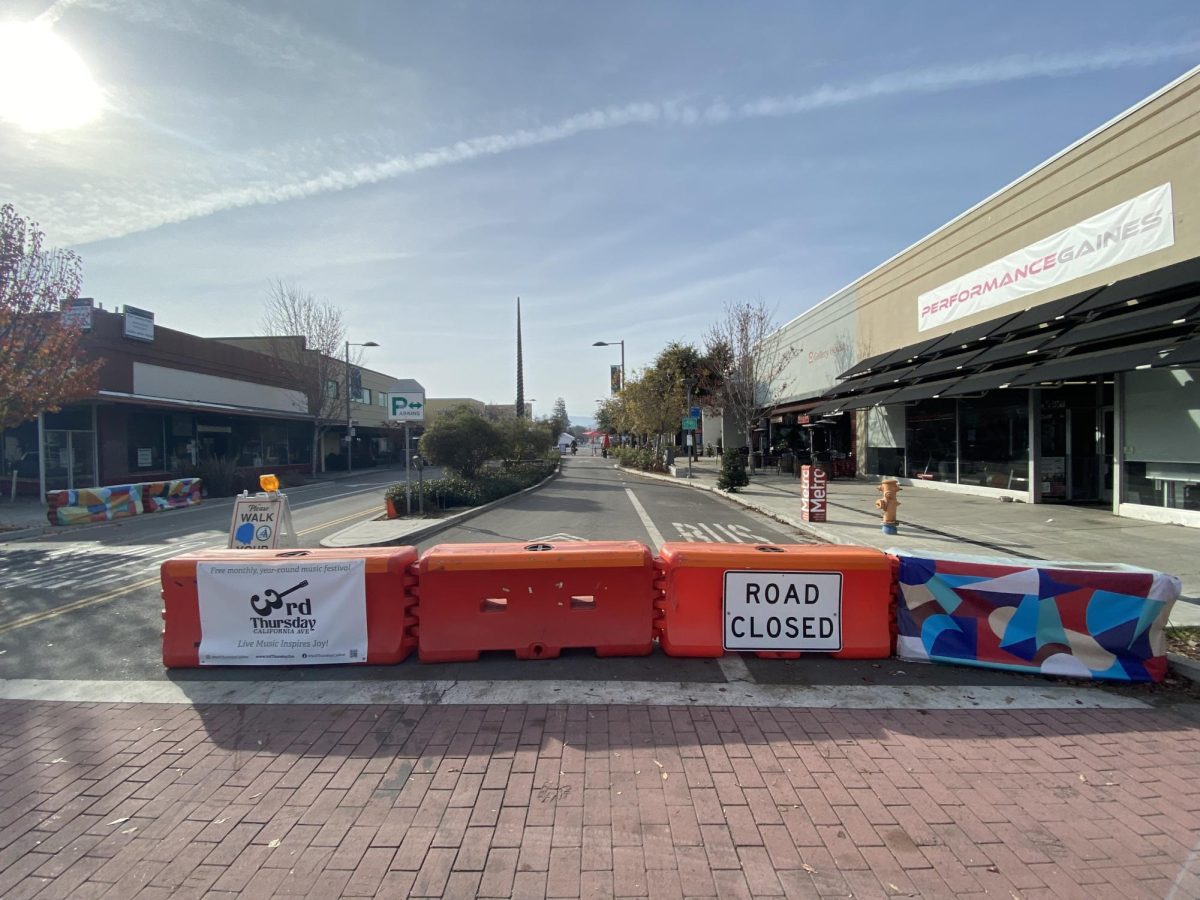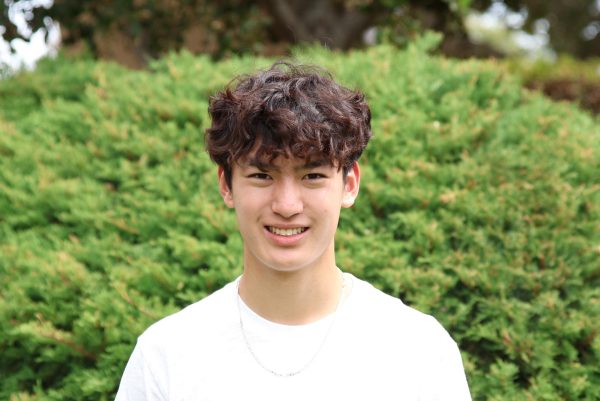What started as a temporary closure to let restaurants serve guests outdoors during the COVID-19 pandemic has turned permanent after the Palo Alto City Council voted 5-2 at its Nov. 6 meeting to permanently close California Avenue to vehicles.
The resolution also included provisions for renovations and new signage and bike lanes on California Avenue.
Mayor Lydia Kou and City Council member Vicki Veenker were the two dissenting votes.
Veenker said the council needed to take this vote because the original ordinance allowing for the closure was set to expire.
“Had we done nothing, the closure would have expired, which sort of automatically would have reverted it to an open street,” Veenker said. “There was great interest in keeping it closed.”
Junior Taishi Liu said he is glad the council voted to make the street closure permanent.
“Since the pandemic, I’ve often gone to Cal Ave for breakfast,” Liu said. “It’s closer for me than going downtown. I’ve always enjoyed sitting outside without the loud noises of cars.”
Veenker said the information she had seemed to show that residents generally wanted to keep the streets closed, while business owners wanted the streets to reopen which was the reason for her dissenting vote.
“There seems to be general consensus that everyone wants the street to thrive, and everyone is concerned that it’s struggling a bit right now,” Veenker said. “I want to maximize the likelihood that it will be successful in the long run.”
City Council member Patrick Burt said the pandemic and an increase in work-from-home opportunities caused restaurants on the street to experience fewer customers during workers’ lunch breaks.
“Stanford Research Park has about half the number of workers,” Burt said. “Before the pandemic, many of them would drive through California Avenue, but now there are less of them.”
The pandemic also contributed to a surge of customers in the evening, according to Burt. And occasionally with entertainment provided, an increased number of Palo Alto residents are dining at the restaurants.
“It’s actually much busier in the evening than it ever was before the pandemic,” Burt said. “The pandemic helped people realize socializing is something we value.”
Veenker said she voted against the resolution because she didn’t see a consensus among stakeholders to keep the road closed permanently.
“My position was not ‘No, I don’t want it closed,’” Veenker said. “My position was ‘Not yet’ as I wanted to respect the constituents who had met with me and expressed concerns.”
Burt said he thinks the council’s decision will help businesses and customers in adapting to the post-pandemic era.
Burt also said 80% of respondents to a committee survey conducted in January of 2023 favored permanent closure, and the majority of the council also supported investing in California Avenue.
“It’s like a third place other than work and home,” Burt said. “The community goes there to enjoy and socialize.”
Veenker, though, said she is not sure the ordinance will have that much of an impact on the local economy.
“Before I got on council, the prior commission had authorized an alternative study, which we would use to gauge public opinion,” Veenker said. “But the study wasn’t ready (with) the consensus, so I dissented.”
Moving forward, Veenker said she does support responsibly renovating the street.
“Now that we’re closing the street down, I am going to do everything in my power to make it succeed,” Veenker said. “We can either hire someone with experience redeveloping streets, or we can hire consultants to help us figure this out.”
Finalization of the official legislation wording will come out soon, according to Burt.
“We made the initial council decision so that investments could be made,” Burt said. “There’s a lot that needs to be done, in the short and the long run.”
Though the vote didn’t go her way, Veenker said she is hopeful for the future.
“This is a big project,” Veenker said. “But I see the vision.”


